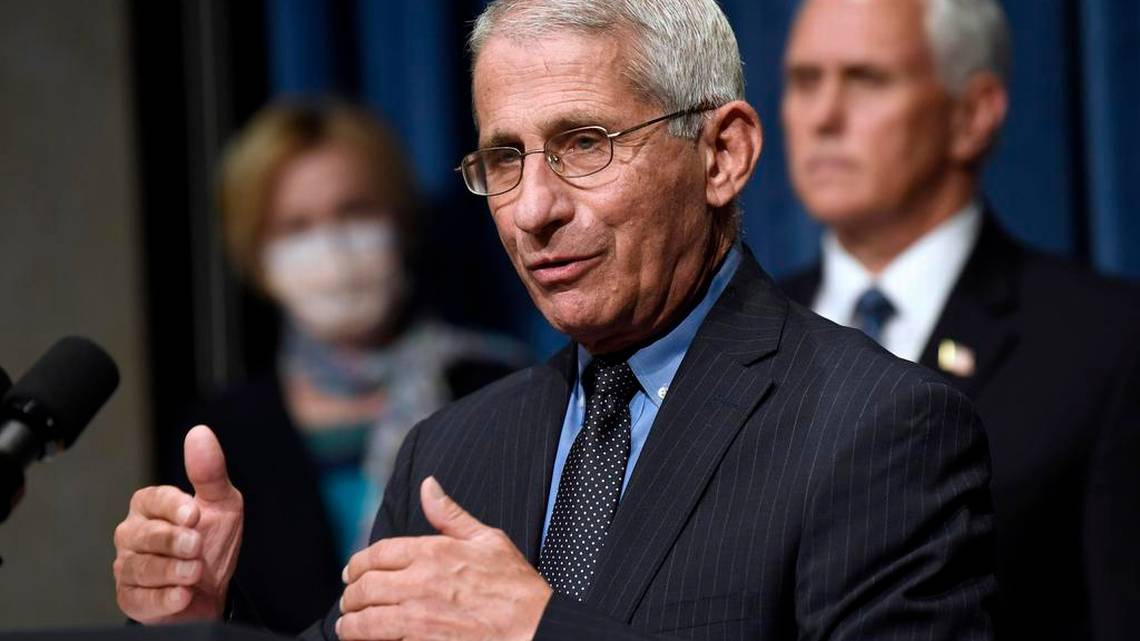The Fauci Effect: Medical schools in Sacramento area are reporting an uptick in applications
The Sacramento Bee by Cathie Anderson
December 6, 2020
 Medical school deans around the nation are seeing what they are calling the “Fauci Effect,” as the number of applications at their medical schools have skyrocketed to unprecedented levels, according to the Association of American Medical Colleges.
Medical school deans around the nation are seeing what they are calling the “Fauci Effect,” as the number of applications at their medical schools have skyrocketed to unprecedented levels, according to the Association of American Medical Colleges.
They’re attributing the phenomena to the relentless news coverage of noted epidemiologist Anthony Fauci and other health care professionals combating the surging COVID-19 pandemic and to the devastation that the disease has wrought in the U.S. labor market.
The number of applications at local colleges have grown by thousands, with UC Davis School of Medicine in Sacramento reporting nearly 40% more resumes than in an average year and the College of Medicine at California Northstate University in Elk Grove saying its applications increased roughly 35% since last year.
“We’ve seen a huge upward trend in applications we’ve had this year,” said Charlene Green, the director of admissions at UC Davis’ School of Medicine. “Typically we would get about 7,000 applications for an admissions cycle. This year, we’ve reached almost 10,000 applications. We’re at about 9,700..”
Dr. Mark Henderson, the dean of admissions, said he thinks this upswing in applications have been linked to Fauci — the director of the National Institute of Allergy and Infectious Diseases since 1984 — because he’s worthy role model who put aside his ego in order to save lives. In interviews, according to Henderson, many applicants talk about how inspiring it’s been to see the commitment of medical personnel and the triumphs of medical science in developing a vaccine in less than a year.
“Dr. Fauci, of course, is an icon for medicine and for physicians because he’s been a voice of reason and a voice of science at a time when there’s been a lot of noise that has to do with science and health and medicine and public health,” Henderson said. “Physicians aspire to use science to advance the health of their patients, and I think he’s definitely had an effect because of his visibility and because he stands out from all the other noise that’s in the media.”
Dr. Joseph Silva, dean of the medical school at California Northstate, has known Fauci since they were both fellows in the study of infectious diseases in 1969, back before it was a subspecialty.
“He’s a great image to sell the career of medicine, and it’s a tough career. It does have dangers as we’ve now seen from a number of health care providers who have contracted the disease, and unfortunately some have died.”
Henderson noted: “In talking with the applicants, as we do ... it’s been a bit inspiring. A lot of them are inspired by the role that medicine has played in the pandemic. The medicine, the health care workers, the courage, their grit, the fact that they’ve been on the front lines of this, it’s been in the news every day. It’s really in people’s minds, so I think the idea of being a physician or being in health care actually has been, in a sense, elevated.”
The upswing is not solely attributable to the current pandemic and its most notable warriors, said Silva and Henderson.
“During hard times,” Silva said, “there is a tendency to drift toward a profession that ... gives you a stable career and it gives you a springboard for a lot of different subcareers.”
Henderson said universities saw a similar interest in graduate programs more than a decade ago during the Great Recession.
“We actually saw an increase, not of this same magnitude, but we saw an increase in application volume, and I think other professional schools see this as well,” he said. “When it’s hard to get a job, there’s an economic downturn, we tend to see a bit of an increase in application volume to professional schools like law schools and medical schools.”
The deluge of applications has been challenging to manage at a medical school like UC Davis where leaders like to have at least two people — a faculty member and a current student — review the entire application, Henderson said. Green added that the goal is evaluate each student beyond the score on a standardized test.
UC Davis attempts to recruit students from underserved rural and urban areas in the hopes that they will want to return to the communities where they grew up and serve people there, Henderson said, and that’s not something you can learn from an MCAT.
UC Davis’ application period closed last week, so Green and Henderson don’t yet know the demographics of the new class. But last year, 43% were first-generation college students and 72% came from economically disadvantaged households.
Overall, the number of students applying to enter U.S. medical schools in 2021 is up 18% from this time last year, according to Geoffrey Young, senior director of student affairs and programs at the Association of American Medical Colleges.
“This large of an increase is unprecedented,” he said. “We can’t say for sure why so many more students have applied this year. ... We survey incoming medical school students every year and will be able to learn more about why this group of students decided to apply, though we won’t have that data until next year.”
Original post: https://www.sacbee.com/news/local/health-and-medicine/article247621140.html
Photo Credit: SUSAN WALSH AP FILE